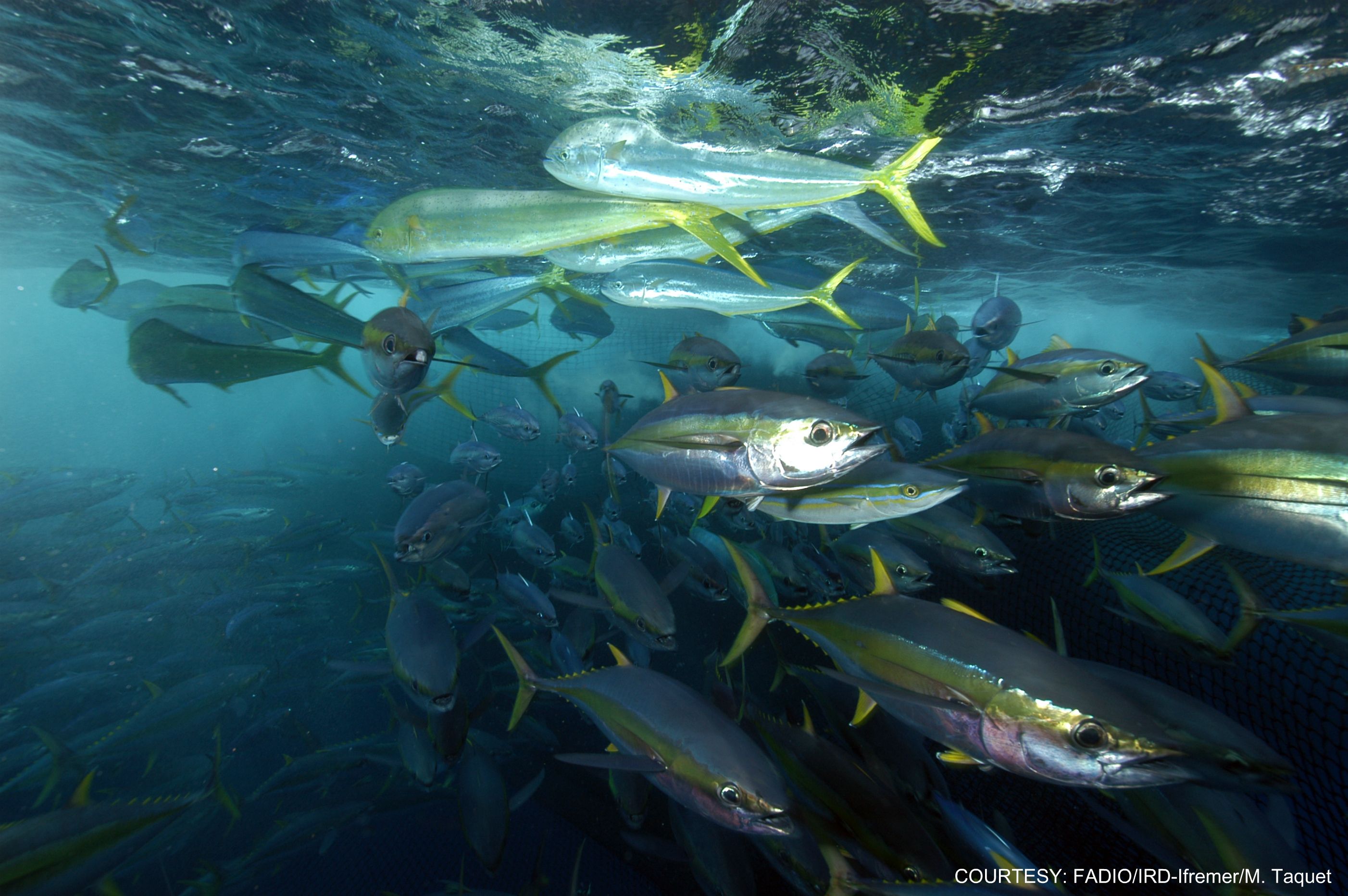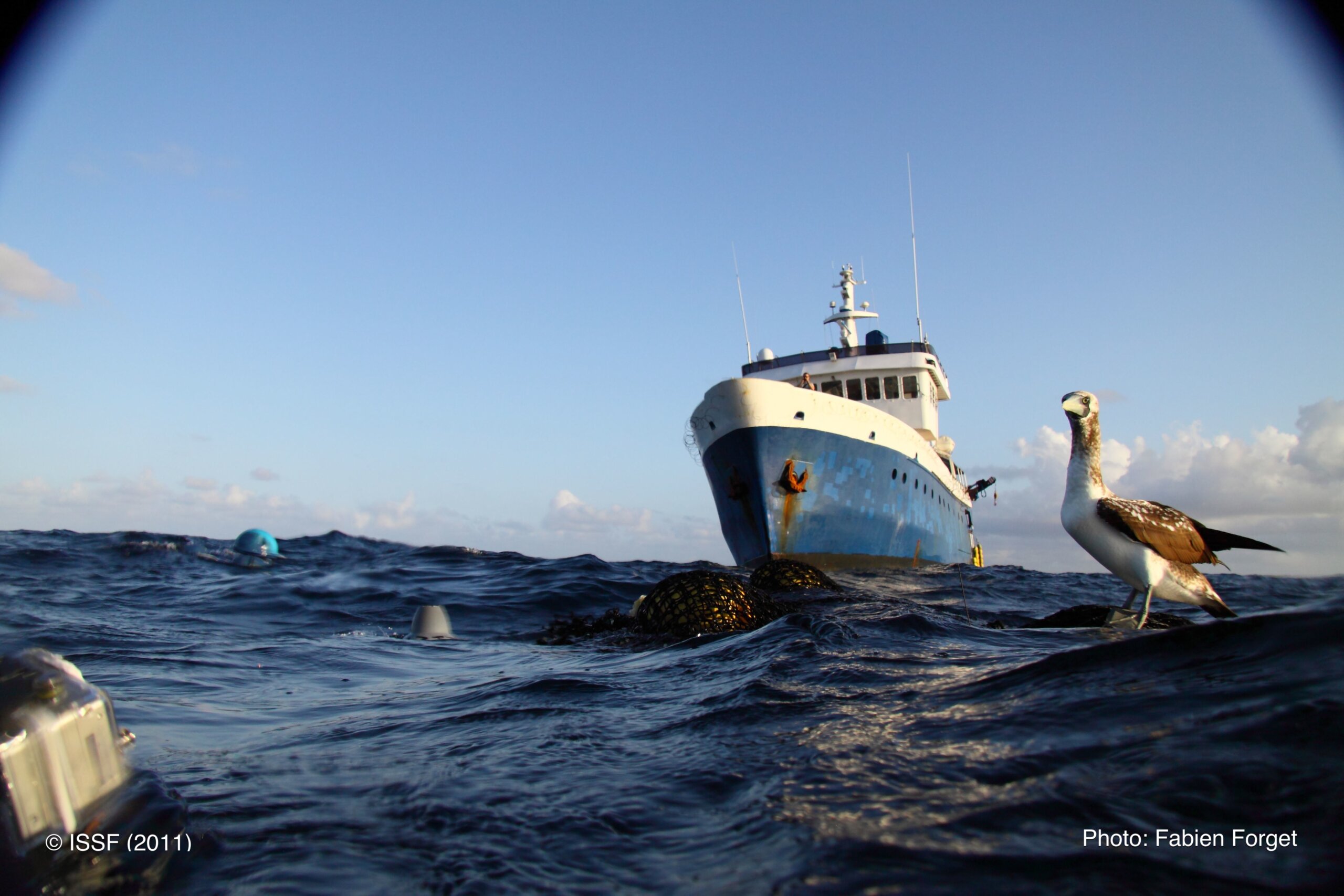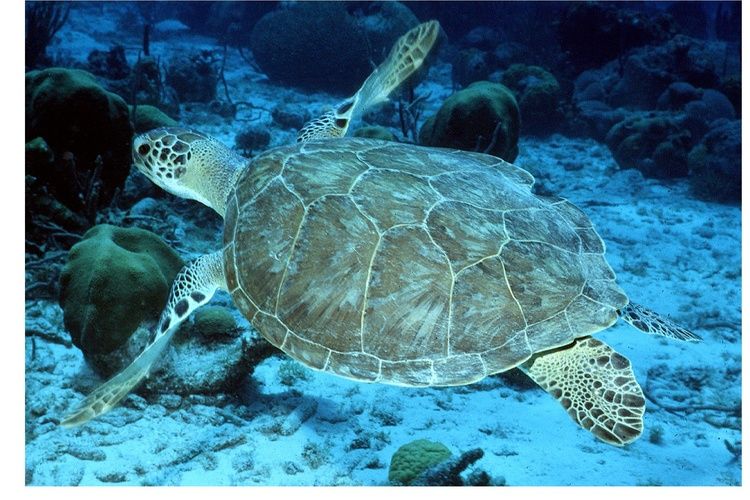
ISSF Assesses ICCAT Annual Meeting: Extended Tropical Tuna Measure and Progress on Electronic Monitoring Among Positive Meeting Outcomes
The International Seafood Sustainability Foundation (ISSF) is welcoming some progress for Atlantic Ocean tuna fisheries as the annual meeting of International Commission for the Conservation of Atlantic Tunas (ICCAT) concludes. We are pleased to see that the Commission retained important management measures and agreed to twenty-four conservation measures in total – notable headway during a virtual format.
Here is a review of the outcomes of the ICCAT meeting against our organization’s top asks as outlined in our 2021 position statement.
Tropical Tuna Conservation Measure
Among the wins at ICCAT is the extension of the Commission’s tropical tuna measure with minor modifications. Continuing the measure in this way will safeguard tuna stock health into 2022.
We are disappointed, however, that certain critical elements of the measure were not tackled. For example, the Commission did not address the matter of total allowable catch (TAC) allocation among Commission members for yellowfin tuna. With the yellowfin catch exceeding TAC again in 2020, and the latest stock assessment showing yellowfin as close to the maximum sustainable yield (MSY) level, the stock may now be in worse shape than bigeye. Compliance with the yellowfin TAC must be addressed by the Commission.
FAD Management
Improved management measures for the use of fish aggregating devices (FADs) in tuna fisheries continually tops our list of RFMO “asks,” and our appeal to ICCAT this year was no different. While the Commission did not make substantial progress on FADs that answered our requests — the use of biodegradable materials, as well as FAD recovery policies, marking schemes, and ownership rules, among others — we are pleased that FAD provisions within the tropical tuna measure were maintained. Overall, there is much more work to do on FAD management at ICCAT in 2022.
Harvest Strategies
ISSF and partners have been consistently urging the accelerated adoption of harvest strategies for tunas across all regional fisheries management organizations (RFMOs). This year, ICCAT adopted a harvest strategy for North Atlantic Albacore. This decision is welcome news, but the Commission must do more on this topic for the long-term protection of all Atlantic Ocean tuna stocks.
Electronic Monitoring
ICCAT moved to create a working group on electronic monitoring systems (EMS) at its annual meeting. Although ISSF had called for the adoption of minimum standards for electronic monitoring and 100% observer coverage (human and/or electronic), this decision is still good progress. Now, the ICCAT working group must move quickly for concrete action on EMS. In highlighting the vulnerability of human observer programs, the global pandemic has underscored the value of robust monitoring, control, and surveillance (MCS) tool for improved fisheries management.
Compliance Committee Action
Another bright spot at the ICCAT meeting came in movement on improving compliance processes for the Commission. Ahead of the meeting, ISSF requested that the ICCAT compliance committee address non-compliance by member nations with FAD data reporting requirements — requirements that are essential to better managing FAD use in Atlantic Ocean tuna fisheries. We are therefore pleased that ICCAT reviewed this matter for the first time this year. Without accurate and complete data on FAD use by Commission members, management measures cannot be fact based or meaningful. Also of note, the Commission developed a “severity of sanctions document” that will be further refined as part of the overall ICCAT compliance program.
Protections for Sharks
Years of overfishing of shortfin mako sharks in the Atlantic Ocean and an associated decline in the species spurred ISSF and others in the NGO community to demand that ICCAT take action to protect these sharks. So we are relieved that ICCAT adopted a management plan for the North Atlantic shortfin mako stock, which includes a two-year ban on retention. Our ask that ICCAT also adopt a fins-naturally-attached provision for sharks was not answered, however, and we will continue our collaborative calls for action there.
There was a good spirit of cooperation among ICCAT parties this year; it was a meeting of partial hits and some misses. We hope you will join ISSF efforts to continue to demand progress for Atlantic Ocean tuna fisheries into the New Year. We will continue to work cooperatively with all ICCAT parties and with our diverse, multi-sector stakeholders to ensure the enduring health of the tunas and ecosystems of the Atlantic Ocean.


